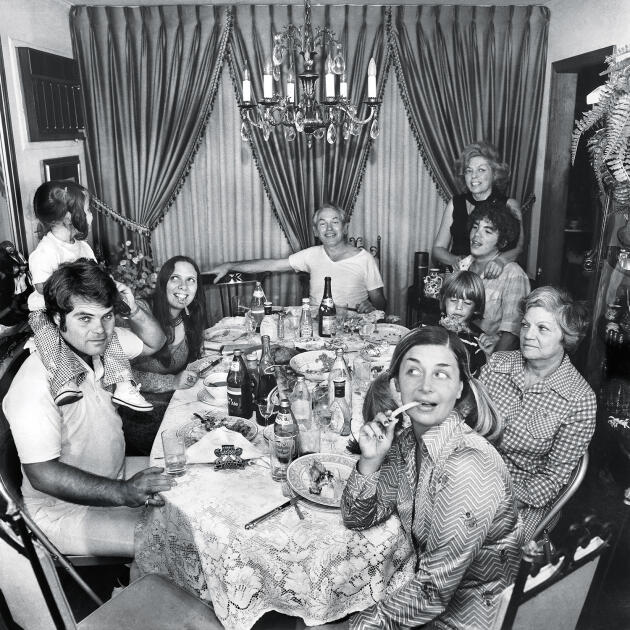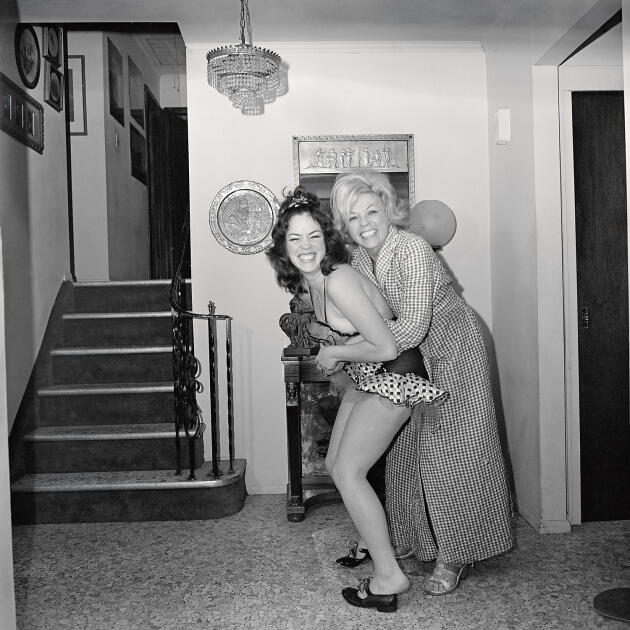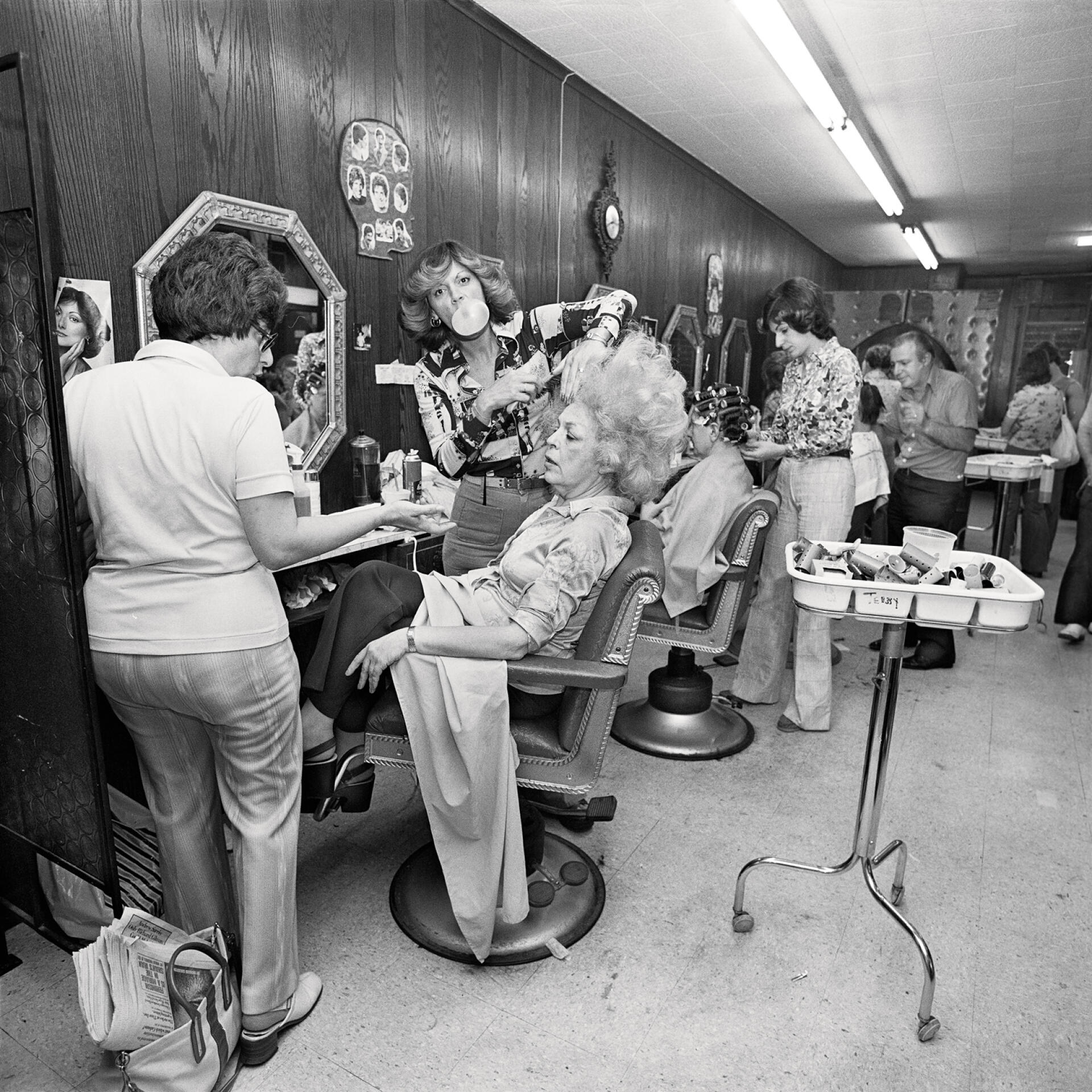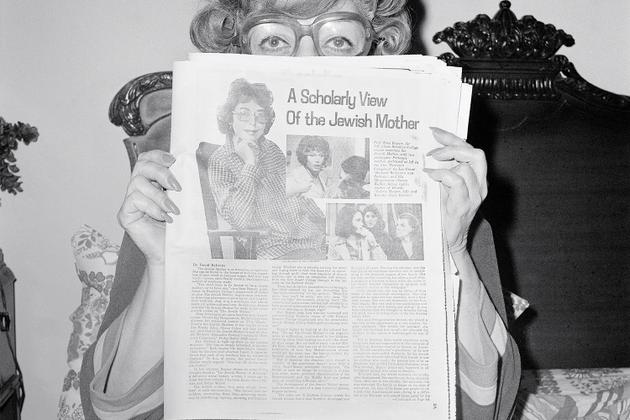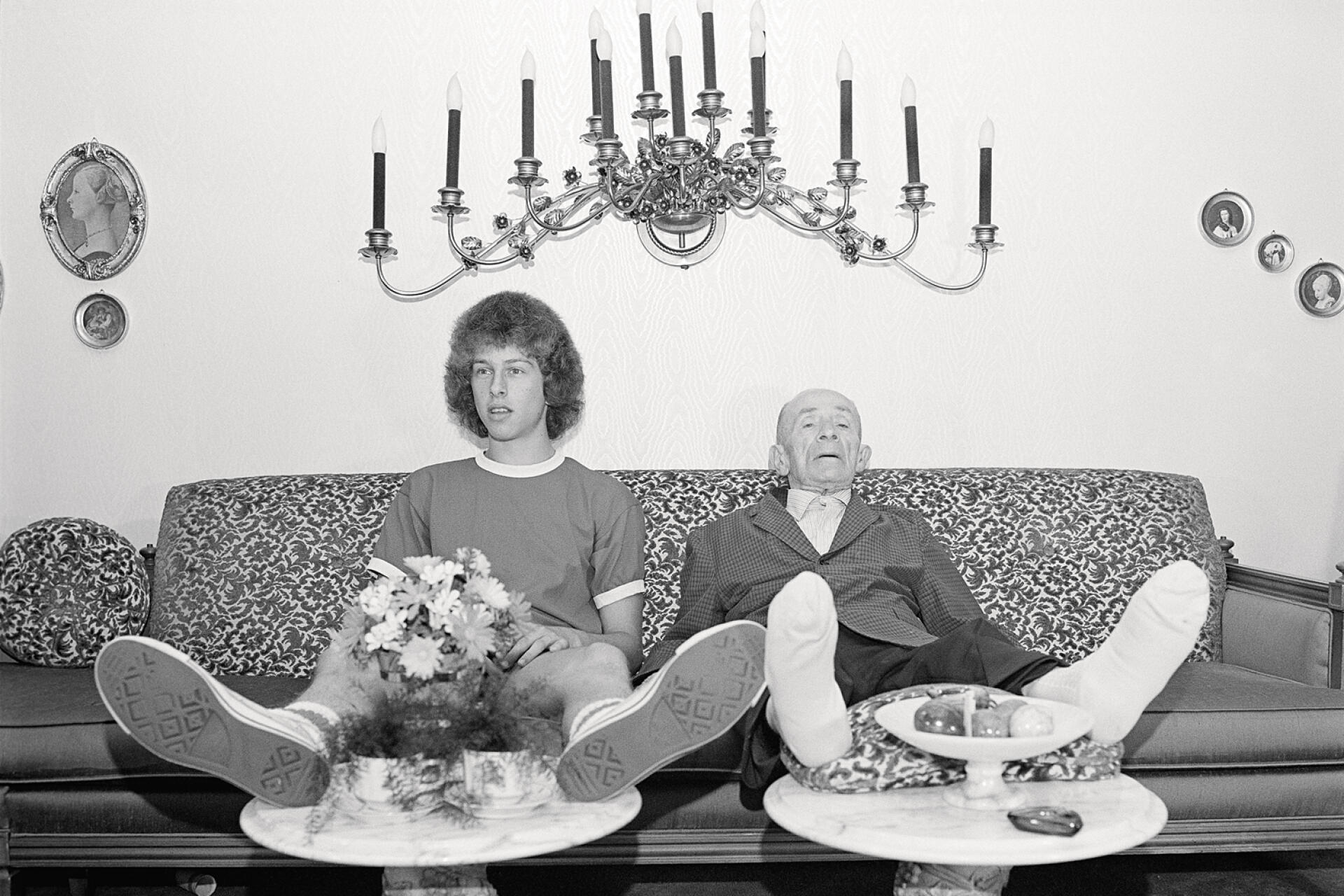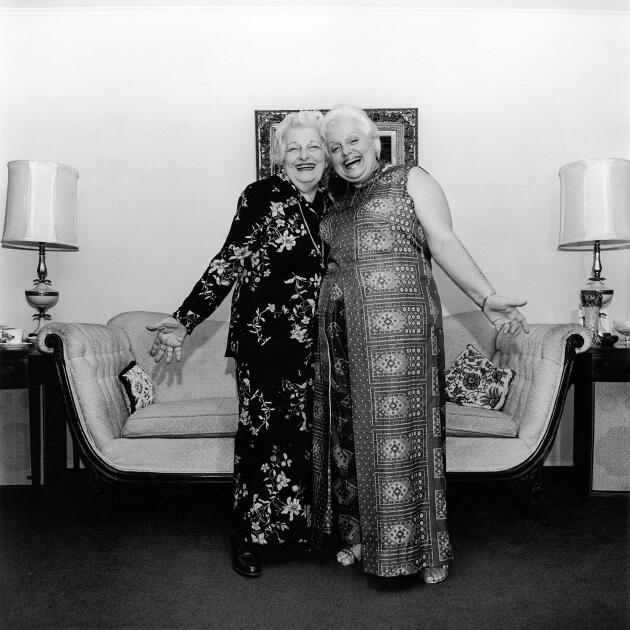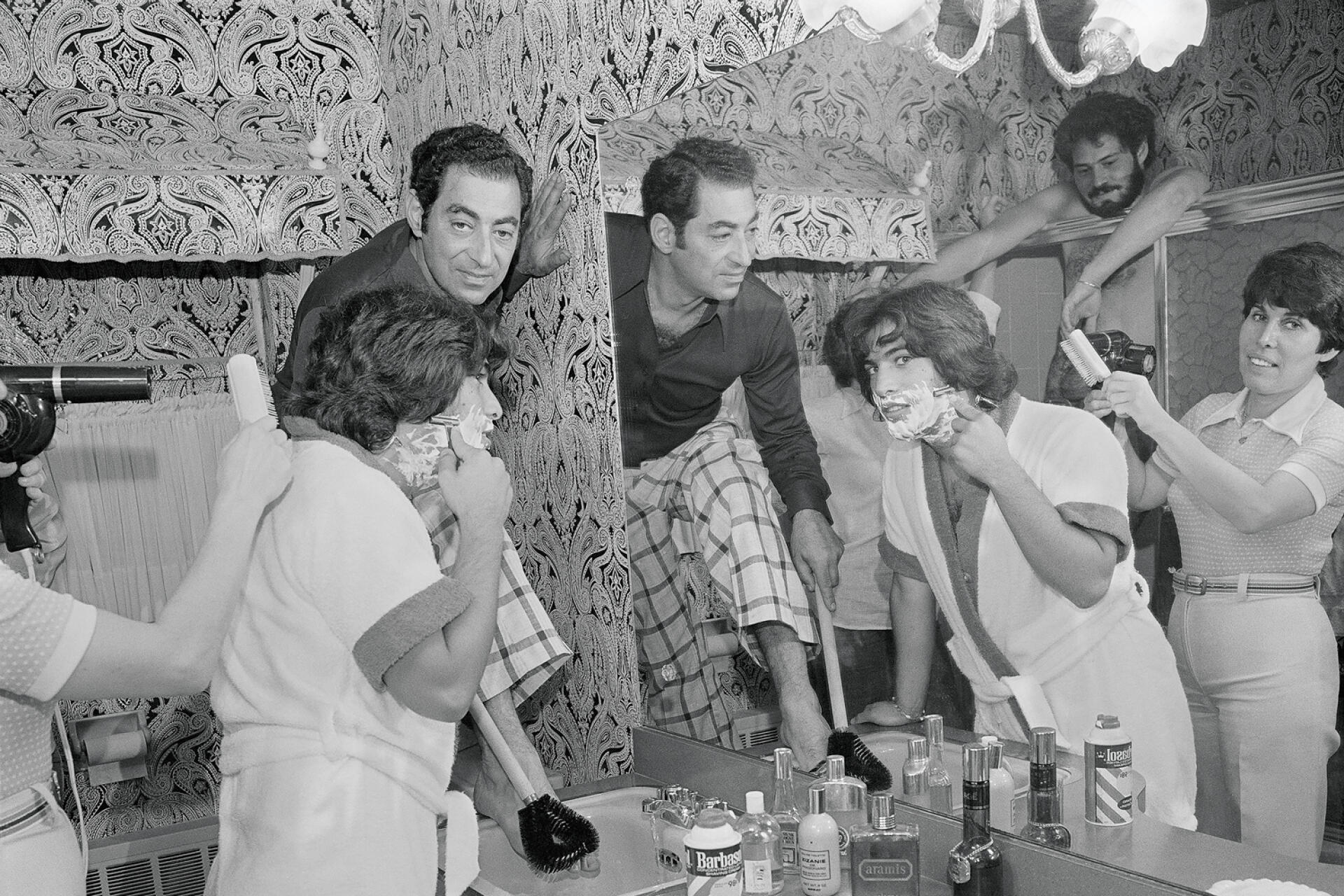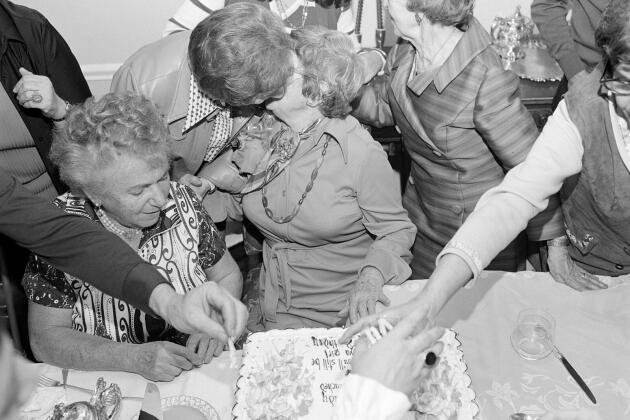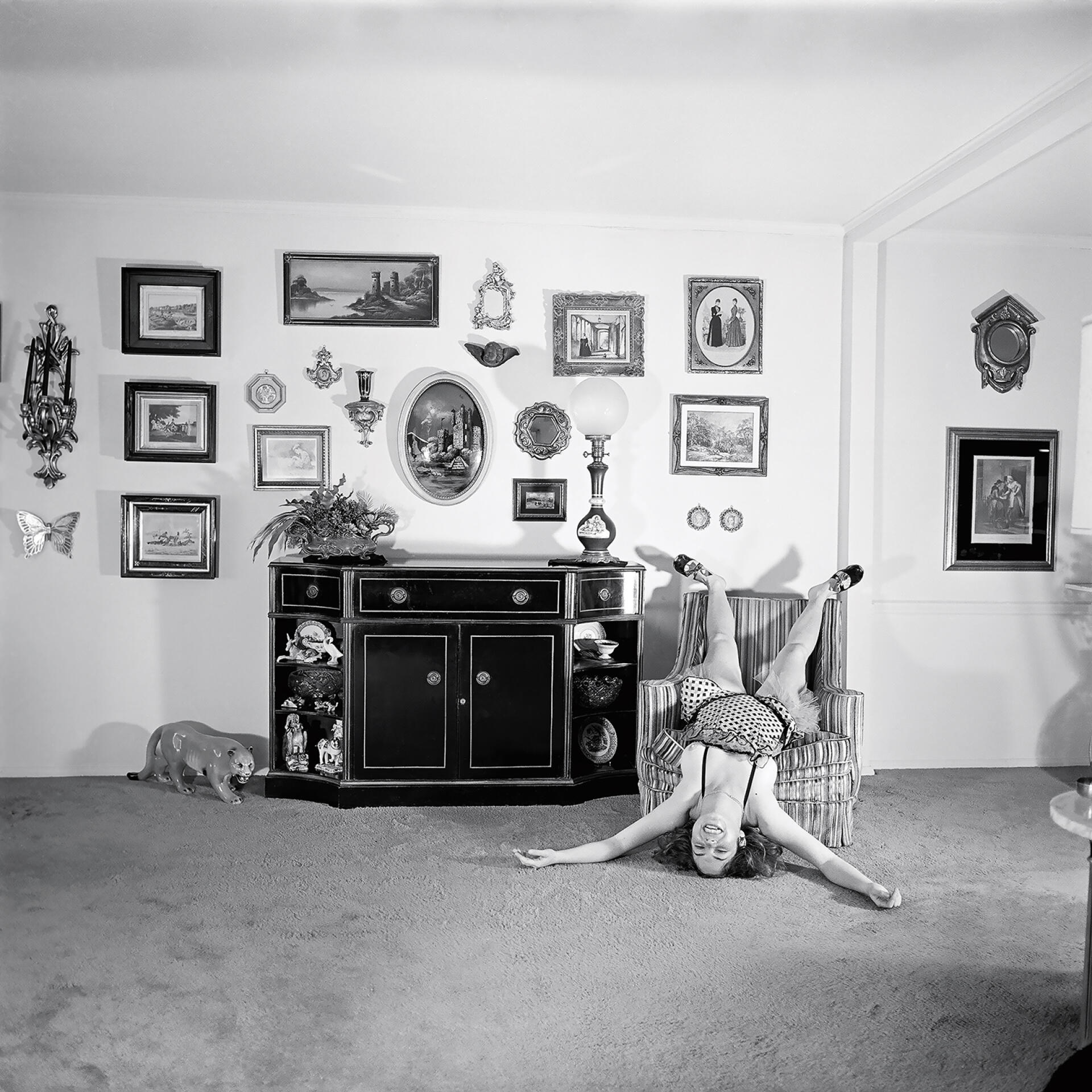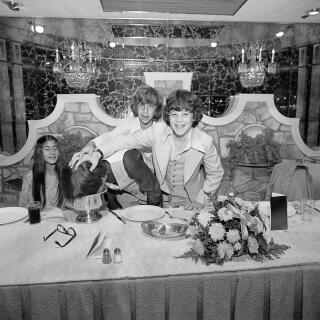In Meryl Meisler's family photos, presented at the Portrait(s) festival in Vichy until September 4, one thing is obvious: the American photographer didn't go much further than her home town of Massapequa, a hamlet located on Long Island, near New York. She didn't need to go anywhere else to discover a unique, fantastic and visually powerful subject.
The world she has illustrated is that of her own Jewish family, with its rites and traditions, like the evening of Rosh Hashanah (the Jewish New Year) that takes place, according to the rhythm of the Hebrew calendar, in September or October. It is a religious holiday: It is not a time for party accessories, costumes and excesses, but for celebrating the creation of the world.
Those familiar with these rituals will identify in Ms. Meisler's shots the lacy tablecloth that is so commonplace in Jewish families on holiday evenings, with the sweet kosher wine that is consumed only in American Jewish homes. Just one sip of this pharmacy syrup-tasting drink is enough to understand why it did not spread to other communities.
A strong sense of hedonism
The evening is as much about the continuation of an age-old tradition as it is about an era: the 1970s. "I don't go out and take pictures. I take pictures where I go," said Ms. Meisler, born in 1951. The world photographed by this New York City public school teacher between the end of the 1970s and the beginning of the next decade gravitated between two distinct and seemingly irreconcilable universes: the family unit, with its traditions and its roots on Long Island, and the nightlife experience of the New York disco scene, of which Ms. Meisler was a regular.
How can we not see a link with the world of fashionable nightclubs when looking at the photographer's mother, Sunny Meisler, in the middle of a dance floor at a bar mitzvah? How can we not think of the exuberance of the nightclubs frequented by the young Meryl faced with a man in a three-piece suit doing the splits during a wedding? Especially since the Meisler family posed with eccentricity, showing a taste for colorful shirts and baroque motifs. Everything in these photos underlines a keen sense of hedonism: a Rosh Hashanah to last all year.
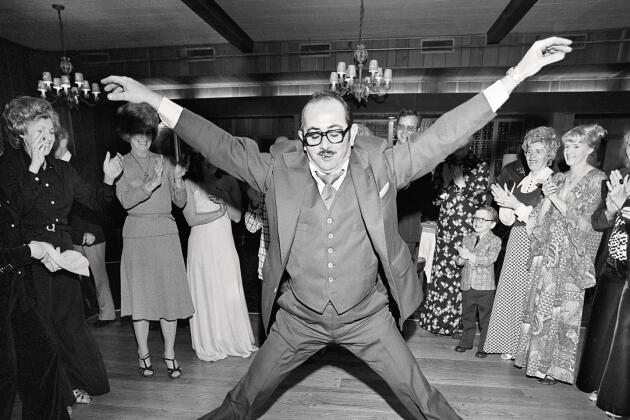
In addition, there is an element that is more difficult to capture in images, that of history. Meryl Meisler's grandparents left Central Europe and its pogroms for America. Her parents escaped the Great Depression and, taking advantage of the boom in the early 1950s, bought a Chinese-owned farm in a hamlet on Long Island where no one had yet settled. Eventually, Long Island would become a prosperous place.
The strange evenings of the Mystery Club
The Meisler parents founded the Beth-El Synagogue, near their hamlet, and created the Mystery Club. This Mystery Club consisted of about 15 couples of their friends, all Jewish and living on Long Island. For decades, they met once a month until most of them moved to Florida upon retirement.
For each "session" an invitation, sometimes in the form of a poem, was sent out, asking members to bring a particular outfit. The meeting point could be a shopping mall or a cemetery, and all together they would go on a trip to various places: a "haunted" house, a nudist beach, a gay sauna (to attend a cabaret show), a Chinese restaurant (where they took cooking classes), a music studio (to record a record), etc.
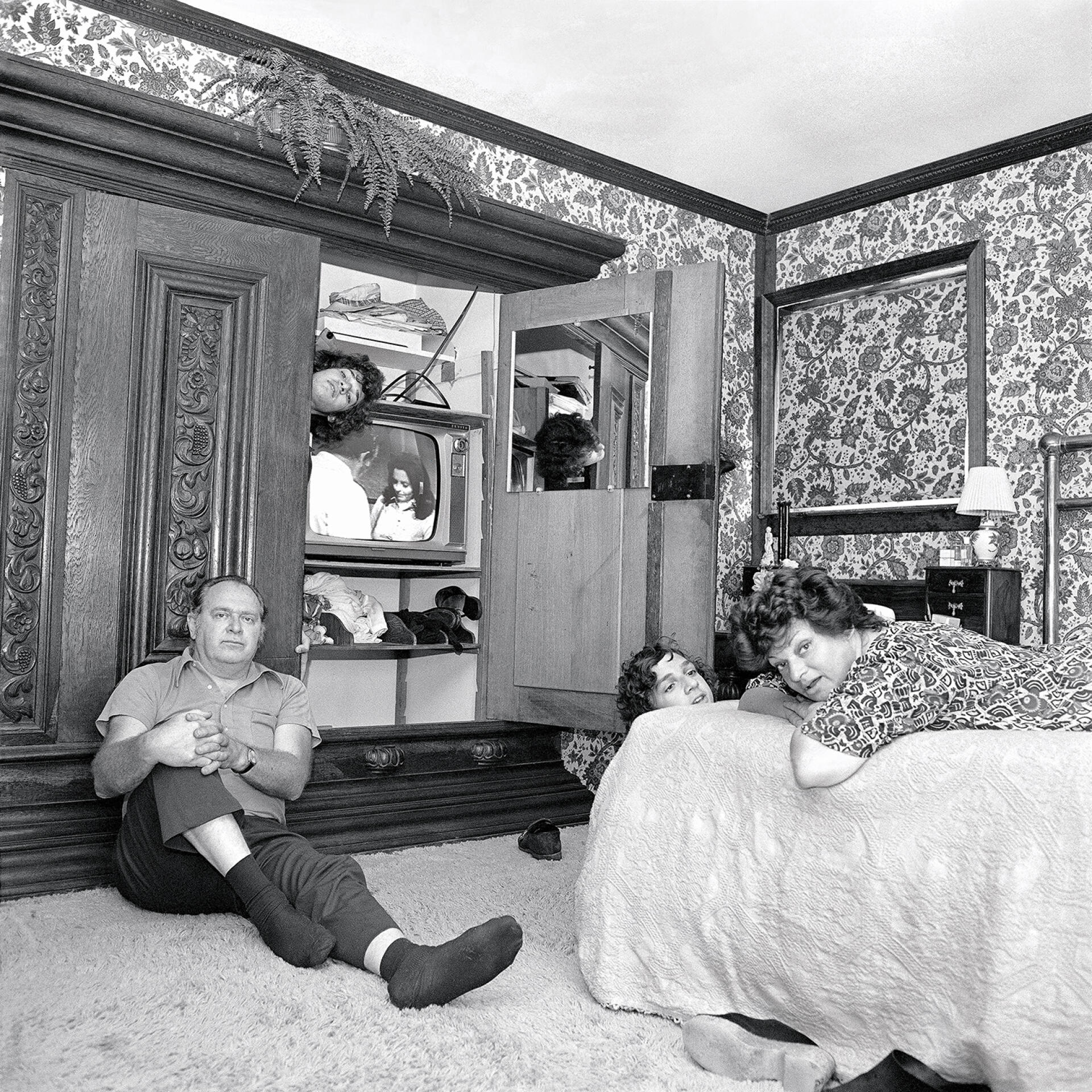
"My brothers and I were fascinated by the stories of our parents' parties," said Ms. Meisler. "When I started working, I knew right away that I didn't want to photograph just my family, but all the groups having fun, like at my parents' Mystery Club."
Meryl Meisler compiled her photographs into a collection entitled Purgatory & Paradise: Sassy '70s. Suburbia & the City, (Bizarre Publishing, 2015). Purgatory and paradise, like two sides of the same coin. Paradise is obviously that of the party, laughter, moments shared with family and friends. On these pictures, purgatory and its pains are absent, but Ms. Meisler is haunted by history, as if the happiness she has shown is fragile, fleeting and always ready to topple over.
